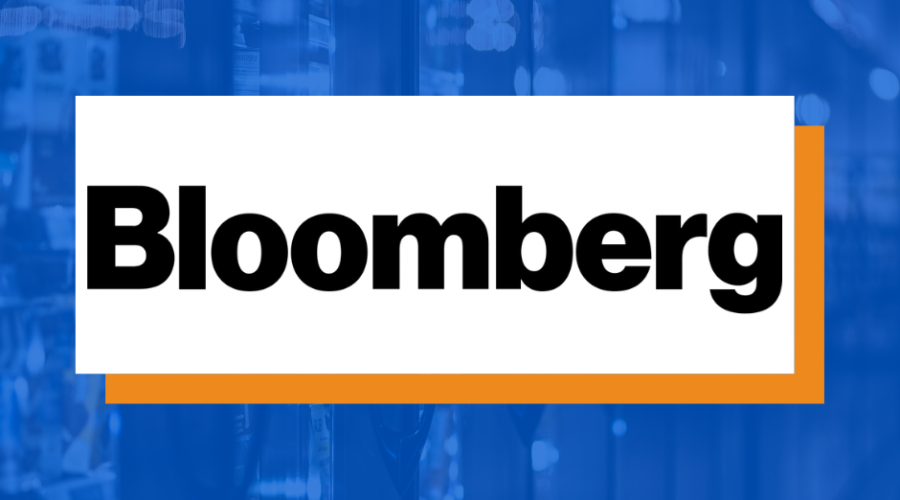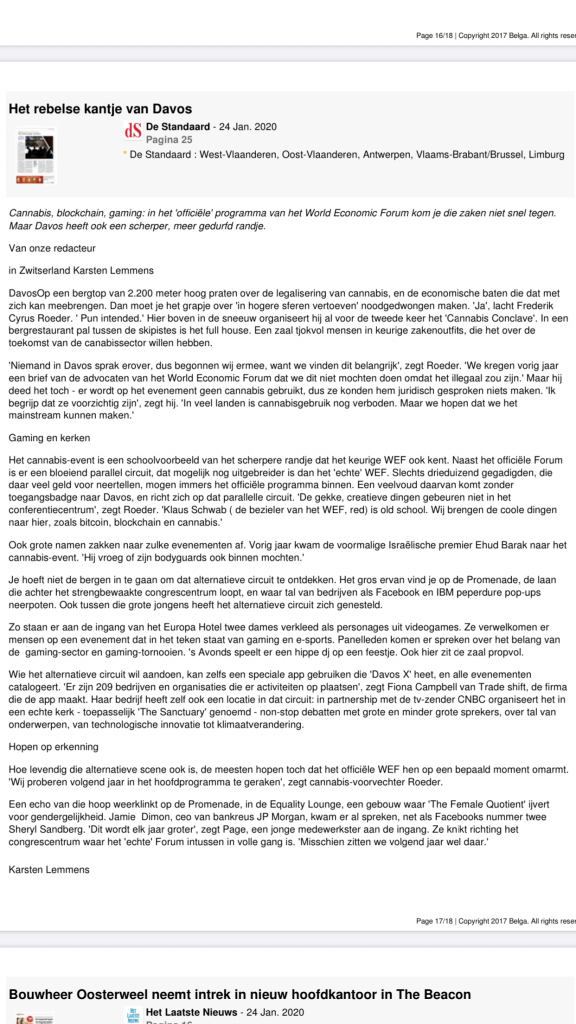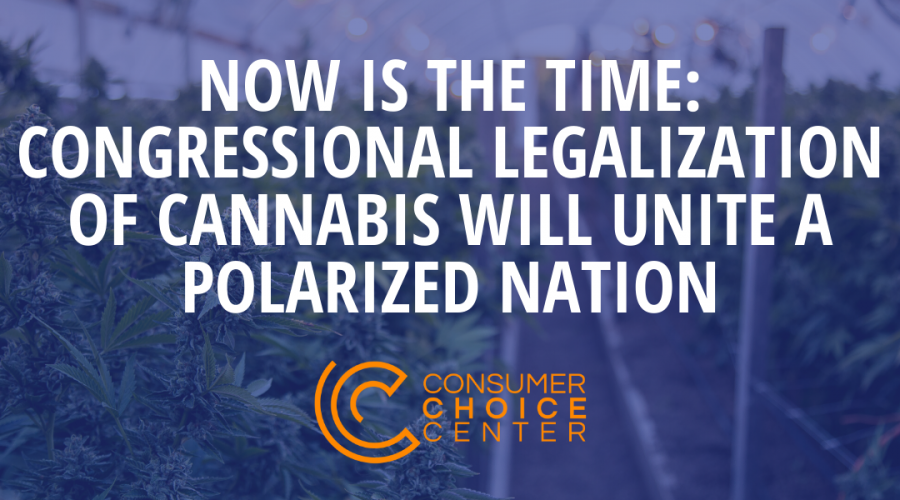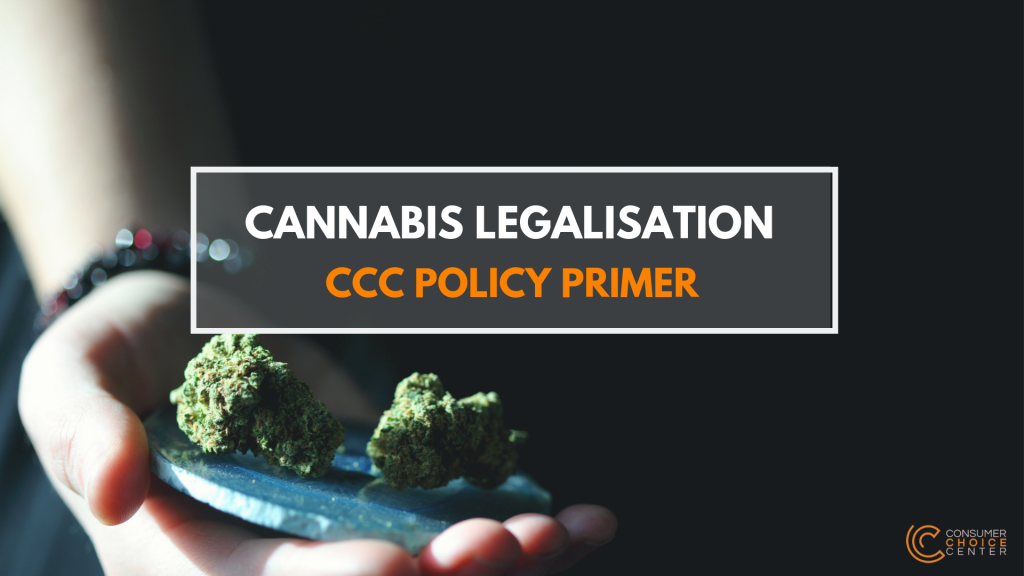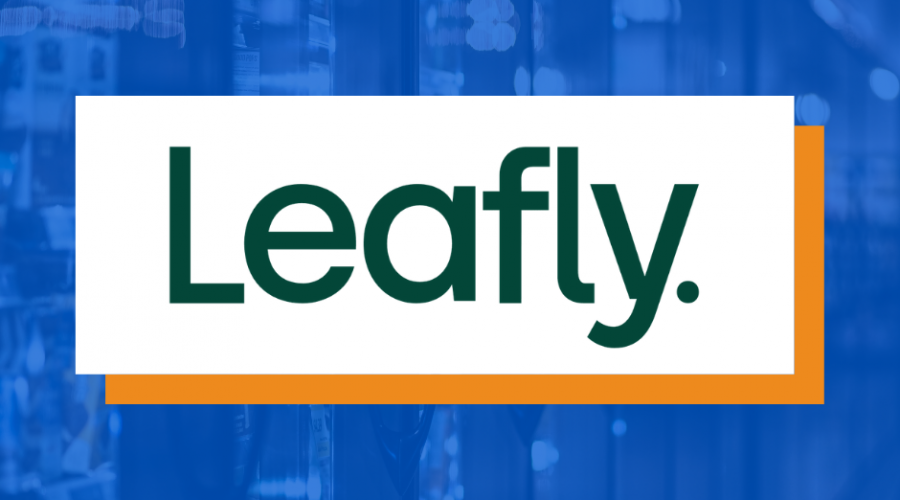Cannabis Industry Gathers In Davos: ‘No Silver Bullet Gets Rid Of An Illegal Product’

The World Economic Forum (WEF) in Davos, Switzerland, took place this week and alongside the main event there was a cluster of small cozy cannabis gatherings hosted in the Alps.
Switzerland is one of my favorite countries for a business trip and this week I experienced the ultimate luxury which involved sipping champagne and discussing pot – and the vibe was very much on point.
Business leaders, financial heavyweights and leading politicians from all over the world gathered to discuss key issues revolving around climate change and sustainable business. It’s estimated around 119 billionaires and 53 heads of state attended this year.
The Cannabis Conclave was a huge hit the previous year – an event hosted by David Clement from the Consumer Choice Center. The event was well attended by hedge fund managers and regulators, attracting crowds from Canada, Switzerland, Europe, Israel and China. Many discussions centered around the rapidly growing cannabis industry and how conservative countries are also adopting the recreational drug.
Canada was the second country, after Uruguay, to make cannabis federally legal and as a result took a cautious and in some times instances took a limited approach that has stifled both product availability as well as distribution chains.
What Can We Learn From Canada?
One Canadian government official at Davos who asked to remain anonymous explained: “Our federal government downloaded key aspects to provincial and municipal counterparts that created a disparate and disconnected set of frameworks creating confusion and a wide variety of structures across the country.”
He explained there has been clear winners such as Alberta that has a robust retail and production framework while Ontario has continually been lambasted for a slow and painful rollout that has reduced the success of legalization in the key market in the country.
“As a result we have clear winners and losers and there is much to learn from our experience. As the frameworks and mis-steps are remedied as like any new industry there will be meaningful lessons to be learned,” he explained.
He went on to add no country charting new ground has everything right and in some ways the black market has remained as vibrant as ever whose diminishment was the core cause.
“No silver bullet gets rid of an illegal product, but only meaningful policy that suits the customer and their wallet is effective and the correct approach, market forces should be listened to,” he said.
The Hurdles Of Cannabis
Over champagne, the official added a meaningful lesson for America is to ensure there are no disconnects between states and the federal government that currently persist that has limited proper regulation across the country and in particular created technical and practical problems for the legal industry that continues to give breath and vibrancy to the illicit market.
Stephen Murphy, co-founder of NOBL, highlighted the cannabis plant remains a great unknown with only 3% of the plant meaningfully studied. He stressed there is huge potential of the remaining 97% from a health, economic and social perspective.
Originally published here.
The Consumer Choice Center is the consumer advocacy group supporting lifestyle freedom, innovation, privacy, science, and consumer choice. The main policy areas we focus on are digital, mobility, lifestyle & consumer goods, and health & science.
The CCC represents consumers in over 100 countries across the globe. We closely monitor regulatory trends in Ottawa, Washington, Brussels, Geneva and other hotspots of regulation and inform and activate consumers to fight for #ConsumerChoice. Learn more at consumerchoicecenter.org

